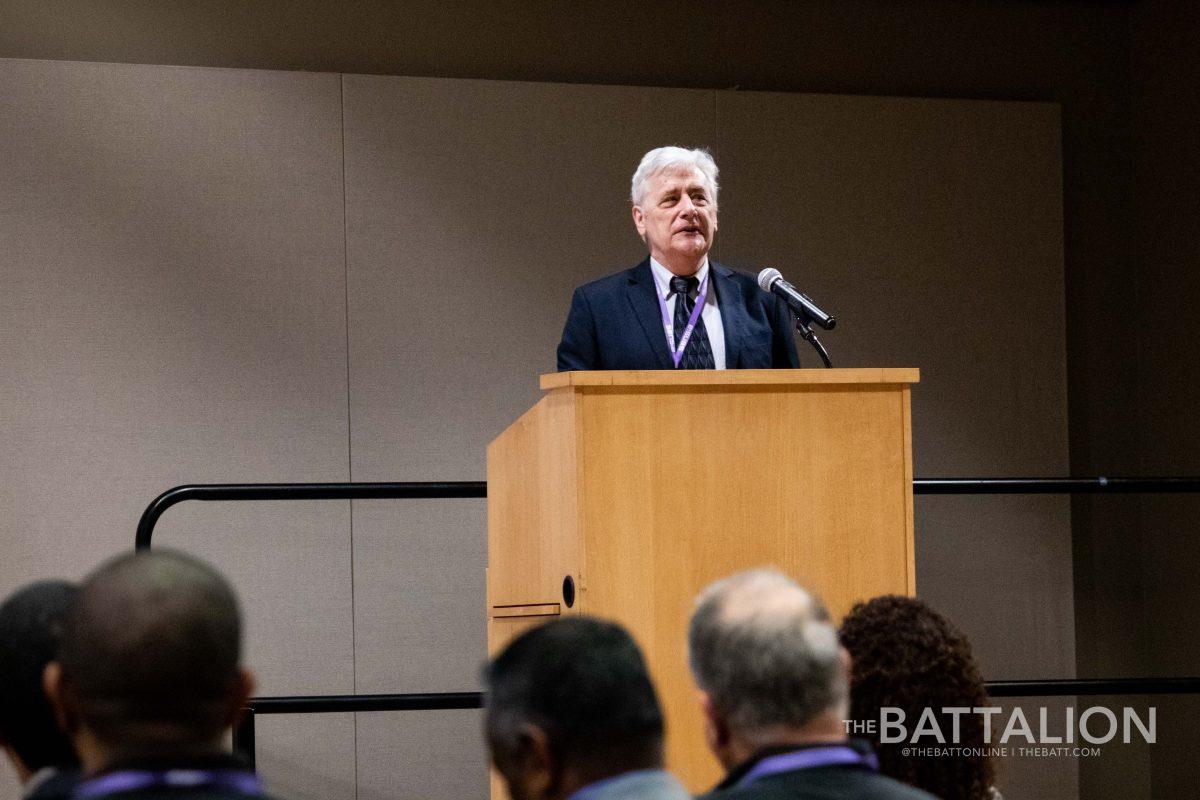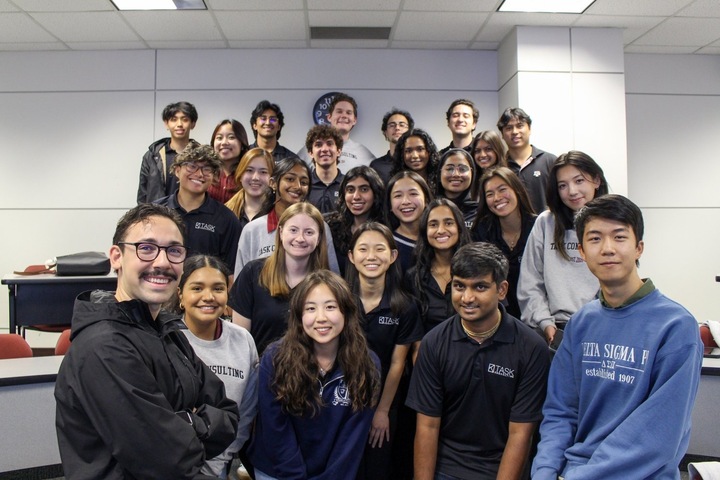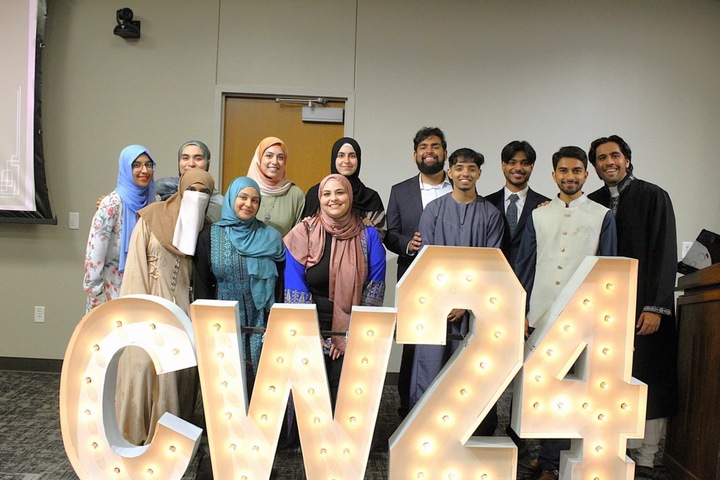Individuals from far and wide gathered in the MSC for the 75th annual Instrumentation and Automation Symposium.
The symposium began Jan. 21 and will run until Jan. 23 on the upper level of the MSC. The goal of the Instrumentation and Automation Symposium is to educate industry professionals on developing technologies and practices impacting today’s world. Speakers include chemical engineering expert Eric Cosman, Emerson Automation’s Principal Senior Software Engineer Greg McMillan and Oklahoma State University Professor Emeritus R. Russell Rhinehart.
Many other influential industrial speakers attended the general sessions and more specific talks, workshops and Q&A panels. Chairperson Paul Pathasema said the talks are divided into specific tracks that focus on certain aspects of industry, such as emerging technology, cybersecurity or safety.
“Some of the tracks are on safety instrumented systems that really keep the processes safe,” Pathasema said. “If a process strays outside of its normal operating conditions for temperature or pressure, these systems automatically shut the process down and keeping these plants as safe as possible.”
During breaks in the symposium, visitors can explore the exhibit hall where companies host booths that provide information about services they can offer manufacturers. One of these companies, Sensia, has a table run by Commercial Engineering Manager Pete Skipp that showcases their capability for automation specifically in oil and gas applications.
“Our goal as a company is to be industry experts,” Skipp said. “There are companies that have technology and companies that have expertise, but Sensia has both.”
Tuesday’s session began with a keynote address by Cosman, the president of the International Society of Automation, which is also celebrating its 75th year.
Cosman’s speech covered how to define automation in today’s world and how to have a broader perspective on changes in technologies as they come, so companies can be the most efficient and secure.
“My mentor at the time said, ‘Don’t aspire to be a specialist because a specialist knows more and more about less and less until he can tell me everything about nothing,’” Cosman said. “We need to pay attention to what we do, but also need to look around and understand the context in which we work.”
Symposiums such as the Instrumentation and Automation Symposium have played a large role in connecting members of various manufacturing and industrial professions, and helping them stay up to date on technological changes. Pathasema said networking is almost as important as the changing technology itself.
“It really helps to open up those conversations and collaborate a little bit with different companies,” Pathasema said. “The importance of networking is understanding how people have solved similar problems to ones that I’m experiencing, so we get to talk about some things that they’ve tried and that dialogue helps to get new ideas about how to solve particular problems.”
For all people, but particularly students, Cosman said attending events such as the Instrumentation and Automation Symposium can help fine-tune knowledge and teach the characteristics of lifelong learning and adaptability.
“People now feel empowered to plot and manage their own careers, and if they make a false step, they just adjust and go somewhere else or do something different,” Cosman said. “The technology moves so fast, and regardless of what it is — whether it’s computers, networks, communications, advanced mathematics or economics — it’s changing so fast that you have to adopt a lifetime rule: maintain an open mind and always be open to learning.”
Industrial professionals gather for Instrumentation and Automation Symposium
January 21, 2020
Photo by Photo by Joshua Sozio
President of the International Society of Automation Eric Crosman gives the keynote address on the first day of the 75th Annual Instrumentation and Automation Symposium.
0
Donate to The Battalion
$2065
$5000
Contributed
Our Goal
Your donation will support the student journalists of Texas A&M University - College Station. Your contribution will allow us to purchase equipment and cover our annual website hosting costs, in addition to paying freelance staffers for their work, travel costs for coverage and more!
More to Discover









